Politics
Nepal ex-chief justice tipped to lead political transition
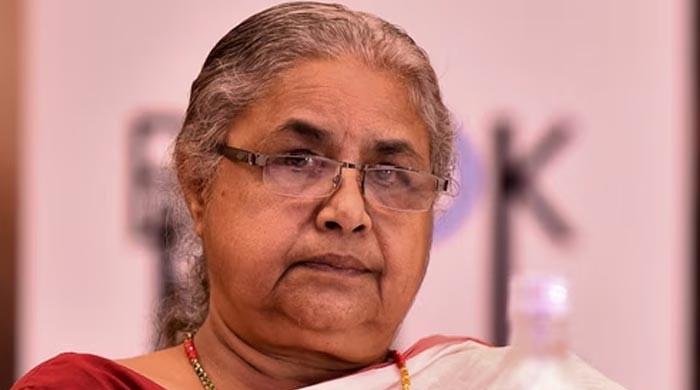
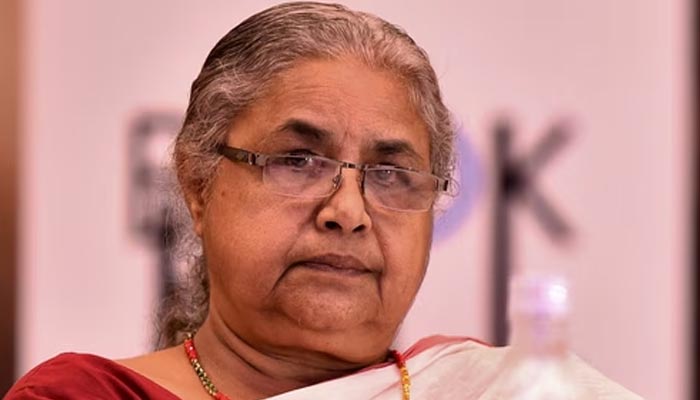
- Nepal protesters back ex-chief justice Sushila Karki as leader.
- Army chief meets Gen Z protesters to discuss interim govt plan.
- Streets in Kathmandu quiet as soldiers keep patrols, checkpoints.
Nepal’s former chief justice Sushila Karki is the leading choice to be interim leader, a representative of the “Gen Z” protesters said Thursday, after demonstrations that ousted the veteran prime minister.
Army chief General Ashok Raj Sigdel held “consultations with related stakeholders and held a meeting with representatives of Gen Z” on Wednesday, a military spokesperson said, referring to the loose umbrella title of the protest movement, without giving further details.
The army is seeking to restore order in the Himalayan nation of 30 million people, after the worst violence in two decades ousted the prime minister and left the parliament ablaze on Tuesday.
“Right now, Sushila Karki’s name is coming up to lead the interim government — we are now waiting for the president to make a move,” said Rakshya Bam, who was among those attending the meeting.
“We discussed with the army chief about the future,” she told AFP.
“The conversation was about how we can move forward, keeping the peace and security of the country.”
Karki, 73, an academic and Nepal’s first female Supreme Court chief justice, has told AFP that “experts need to come together to figure out the way forward”, and that “the parliament still stands”.
But others warned the choice of the protesters — who are not one single party — was far from unanimous.
In a virtual meeting attended by thousands on the online social platform Discord, young people discussed their varied agendas — and debated who should represent them.
There were conflicting arguments and several names proposed.
“There are divisions,” journalist Pranaya Rana said. “It is natural in a decentralised movement like this that there are going to be competing interests and competing voices.”
Soldiers patrolled the streets of the capital for a second day on Thursday, which appeared to be quiet, with multiple army checkpoints set up along the streets.
Demonstrations began on Monday in Kathmandu against the government’s ban on social media and over corruption.
But they escalated into an outpouring of rage nationwide, with government buildings set on fire after at least 19 people were killed in a deadly crackdown.
Politics
One security force member killed, 2 wounded in Aleppo suicide attack


A suicide bomber targeted a police patrol in Aleppo, killing one person and wounding two members of the security forces, a Syrian government spokesperson said on Wednesday.
“The person who detonated an explosive belt within the patrol in Aleppo is believed to have an ideological or organisational background linked to Islamic State [Daesh],” Interior Ministry spokesperson Nour al-Din al-Baba told state-owned news agency Al Ekhbariya, adding that investigations were ongoing to determine the attacker’s identity.
The attacker detonated himself while being searched by the patrol after arousing suspicion, Ekhbariya TV reported, citing a security source.
No group has claimed responsibility for the attack.
Earlier this month, two US Army soldiers and a civilian interpreter were killed in Syria by a suspected Daesh attacker who targeted a convoy of American and Syrian forces before being shot dead.
Politics
Bangladesh Jamaat-e-Islami open to unity govt after Feb vote
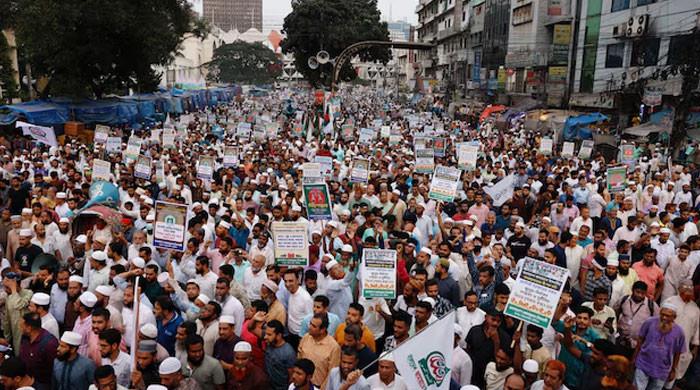

- Jamaat-e-Islami says party held talks with other groups.
- JI chief says anti-corruption must be shared agenda.
- Rahman says party will decide who will be its PM candidate.
DHAKA: Jamaat-e-Islami (JI), once-banned Bangladeshi party, poised for its strongest electoral showing in February’s parliamentary vote, is open to joining a unity government and has held talks with several parties, its chief told Reuters on Wednesday.
Opinion polls suggest that JI will finish a close second to the Bangladesh Nationalist Party (BNP) in the first election it has contested in nearly 17 years, as it marks a return to mainstream politics in the predominantly Muslim nation of 175 million.
JI last held power between 2001 and 2006 as a junior coalition partner with the BNP and is open to working with it again.
“We want to see a stable nation for at least five years. If the parties come together, we’ll run the government together,” JI Ameer (President) Shafiqur Rahman said in an interview at his office in a residential area in Dhaka, days after the party created a buzz by securing a tie-up with a Gen-Z party.
Anti-corruption plank
Rahman said anti-corruption must be a shared agenda for any unity government.
The prime minister will come from the party winning the most seats in the February 12 election, he added. If JI wins the most seats, the party will decide whether he himself would be a candidate, said Rahman.
The party’s resurgence follows the ousting of long-time prime minister Sheikh Hasina in a youth-led uprising in August 2024. Hasina, whose Awami League party is now barred from the election, was a fierce critic of JI, and during her tenure, several of its leaders were sentenced to death.
JI had been banned from elections since 2013 after a court ruled its charter violated the country’s secular constitution. An interim government led by Nobel laureate Muhammad Yunus lifted all restrictions on the party in August 2024.
Ties with India and Pakistan
Rahman said Hasina’s continued stay in India after fleeing Dhaka was a concern, as ties between the two countries have hit their lowest point in decades since her downfall.
As New Delhi seeks to engage parties that could form the next government, Rahman confirmed meeting an Indian diplomat earlier this year after his bypass surgery.
Unlike diplomats from other countries who made open courtesy visits to him, the Indian official asked that the meeting remain confidential, Rahman said.
“Why? There are so many diplomats who visited me and it was made public. Where is the problem?” Rahman said. “So we must become open to all and open to each other. There is no alternative to develop our relationship.”
India’s foreign ministry did not immediately respond to a request for comment on Rahman’s statement about the meeting or any request for it to be confidential.
An Indian government source confirmed contacts with various parties, and India’s foreign minister visited Dhaka on Wednesday to offer condolences to the family of BNP chief and former prime minister Khaleda Zia, who died on Tuesday.
Asked about JI’s historical closeness to Pakistan, Rahman said: “We maintain relations in a balanced way with all. We are never interested in leaning toward any one country. Rather, we respect all and want balanced relations among nations.”
He said any government that includes JI would “not feel comfortable” with President Mohammed Shahabuddin, who was elected unopposed with the Awami League’s backing in 2023.
Shahabuddin, the ceremonial head of the country, himself told Reuters this month that he was willing to step down midway through his term.
Shahabuddin, in a telephone conversation with Reuters on Wednesday, declined to comment on Rahman’s position, saying he did not want to “complicate the matter further”.
Politics
Zohran Mamdani to take over as first Muslim New York mayor under Trump shadow
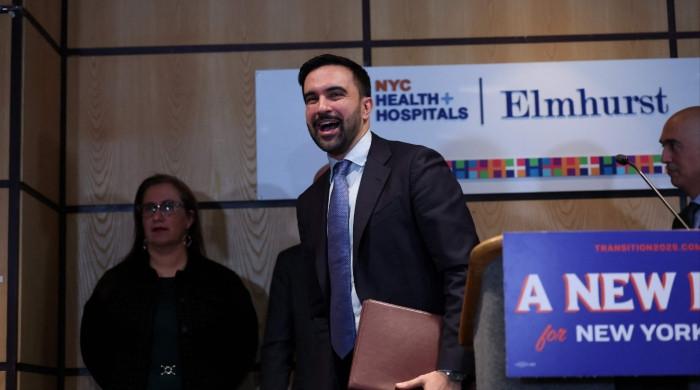

- New York attorney general to perform Mamdani’s swearing-in.
- Ceremonial inauguration on Thursday outside New York City Hall.
- Block party organised to enable New Yorkers watch ceremony.
Zohran Mamdani, a young upstart of the US left, was readying on Wednesday to take over as New York mayor for a term sure to see him cross swords with President Donald Trump.
After the clocks strike midnight, bringing in 2026, Mamdani will take his oath of office at an abandoned subway stop, taking the helm of the United States’ largest city. He will be New York’s first Muslim mayor.
His office says the understated venue for the oath-taking reflects his commitment to working people, after the 34-year-old Democrat campaigned on promises to address the soaring cost of living.
But it remains to be seen if Mamdani — virtually unknown a year ago — can deliver on his ambitious agenda, which envisions rent freezes, universal childcare and free public buses.
Once an election is over, “symbolism only goes so far with voters. Results begin to matter a whole lot more,” New York University lecturer John Kane said.
What Trump does could be a decisive factor.
The Republican, himself a New Yorker, has repeatedly criticised Mamdani, but the pair held surprisingly cordial talks at the White House in November.
Lincoln Mitchell, a political analyst and professor at Columbia University, said that the meeting “couldn’t have gone better from Mamdani’s perspective.”
But he warned their relationship could quickly sour.
One flashpoint might be immigration raids as Trump wages an expanding crackdown on migrants across the United States.
Mamdani has vowed to protect immigrant communities.
Before the November vote, the president also threatened to slash federal funding for New York if it picked Mamdani, whom he called a “communist lunatic.”
The mayor-elect has said he believes Trump is a fascist.
Block party
Mamdani’s private swearing-in at midnight to start his four-year term will be performed by New York Attorney General Letitia James, who successfully prosecuted Trump for fraud.
A larger, ceremonial inauguration is scheduled for Thursday with speeches from left-wing allies Senator Bernie Sanders and Congresswoman Alexandria Ocasio-Cortez.
Around 4,000 ticketed guests are expected to attend the event outside City Hall.
Mamdani’s team has also organised a block party that it says will enable tens of thousands of New Yorkers to watch the ceremony at streetside viewing areas along Broadway.
The new job comes with a change of address for Mamdani as he swaps his rent-controlled apartment in the borough of Queens for the luxurious mayor’s residence in Manhattan.
Some had wondered if he would move to the official mansion given his campaigning on affordability issues. Mamdani said he is doing so mainly for security reasons.
Born in Uganda to a family of Indian origin, Mamdani moved to New York at age seven and enjoyed an elite upbringing with only a relatively brief stint in politics, becoming a member of the New York State Assembly before being elected mayor.
Compensating for his inexperience, he is surrounding himself with seasoned aides recruited from past mayors’ offices and former US president Joe Biden’s administration.
Mamdani has also opened dialogue with business leaders, some of whom predicted a massive exodus of wealthy New Yorkers if he won. Real estate leaders have debunked those claims.
As a defender of Palestinian rights, he will have to reassure the Jewish community of his inclusive leadership.
Recently, one of his hires resigned after it was revealed she had posted antisemitic tweets years ago.
-

 Sports5 days ago
Sports5 days agoBrooks Koepka should face penalty if he rejoins PGA Tour, golf pundit says
-

 Business5 days ago
Business5 days agoGovt registers 144olive startups | The Express Tribune
-

 Politics5 days ago
Politics5 days agoThailand, Cambodia agree to ‘immediate’ ceasefire: joint statement
-

 Fashion1 week ago
Fashion1 week agoNew Balance Americas SVP Melissa Worth departs
-

 Entertainment1 week ago
Entertainment1 week agoTimothée Chalamet in question for ‘Marty Supreme’ press tour attitude
-

 Entertainment5 days ago
Entertainment5 days agoSecond actor accuses Tyler Perry of sexual assault in new lawsuit
-
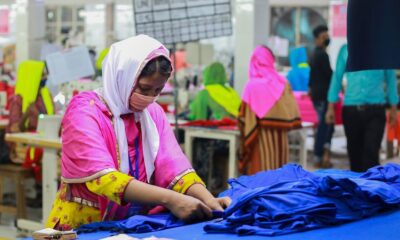
 Fashion5 days ago
Fashion5 days agoClimate change may hit RMG export earnings of 4 nations by 2030: Study
-

 Tech1 week ago
Tech1 week agoTop 10 telecoms stories of 2025 | Computer Weekly






